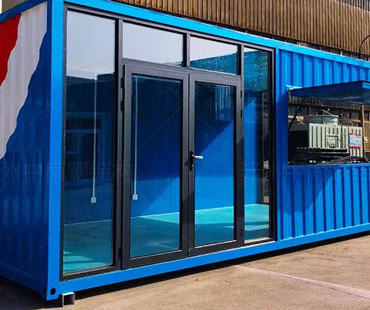China has emerged as a pivotal player in the realm of international trade, significantly influencing the global economy through its extensive container transportation network. This article explores the critical role of China’s container transportation system as a bridge for global trade, examining its evolution, current challenges, and future opportunities.
Containerization revolutionized shipping by allowing goods to be packed in standardized containers, which can be easily transferred between ships, trucks, and trains. In the late 20th century, China recognized the potential of container transport as a means to boost its economic growth. The establishment of major ports, such as Shanghai, Shenzhen, and Ningbo, has positioned China as the world’s largest container port operator.
Over the past few decades, China’s container shipping capacity has expanded dramatically. The country has invested heavily in port infrastructure, logistics facilities, and shipping fleets, which has enabled it to handle an increasing volume of cargo. As a result, Chinese ports are among the busiest in the world, accounting for a significant share of global container traffic.
The Role of China in Global Trade
1.Facilitating Exports: China is often referred to as the "world's factory," producing a vast array of goods for export. The efficiency of its container transportation system has allowed Chinese manufacturers to ship products to markets around the globe swiftly. The rapid movement of goods contributes to lower costs and shorter delivery times, making Chinese products more competitive in international markets.
2.Connecting Global Markets: China’s container transportation network serves as a vital link between producers and consumers worldwide. Through initiatives such as the Belt and Road Initiative (BRI), China is enhancing its trade relationships with countries in Asia, Europe, Africa, and beyond, building infrastructure that facilitates smoother trade routes.
3.Boosting Regional Economies: The container transportation industry has spurred economic growth in various regions across China. Coastal cities, in particular, have benefited from the influx of logistics and shipping companies, creating jobs and stimulating local economies. The development of free trade zones and special economic regions has further accelerated this growth, attracting foreign investment and fostering innovation.

Current Challenges in Container Transportation
Despite its successes, China’s container transportation system faces several challenges:
1.Port Congestion: The rapid increase in container traffic has led to congestion in major ports. Delays in loading and unloading vessels can disrupt supply chains and increase shipping costs. Addressing this issue requires investments in port infrastructure and the adoption of advanced technologies to improve efficiency.
2.Environmental Concerns: The shipping industry is a significant contributor to greenhouse gas emissions. As global awareness of climate change grows, there is increasing pressure on the container transportation sector to adopt more sustainable practices. China is actively seeking to reduce emissions through investments in cleaner technologies and sustainable shipping practices.
3.Geopolitical Tensions: Trade tensions and geopolitical conflicts can impact container transportation routes and trade flows. Changes in tariffs, sanctions, or trade agreements can create uncertainty for businesses relying on Chinese exports. Companies need to develop strategies to mitigate these risks and adapt to the dynamic geopolitical landscape.
4.Technological Integration: While technology has the potential to enhance efficiency, integrating new systems can be challenging for many players in the industry. Embracing digital transformation, including the use of data analytics and automation, is essential for maintaining competitiveness in a rapidly evolving market.
Future Opportunities for China’s Container Transportation
1.Investment in Smart Ports: The future of container transportation lies in the development of smart ports that leverage technology for enhanced efficiency. Investments in Internet of Things (IoT) devices, automation, and data analytics can streamline operations, reduce congestion, and improve service delivery.
2.Sustainability Initiatives: Embracing sustainability presents a significant opportunity for China’s container transportation industry. By investing in green technologies, such as LNG-powered vessels and electric cargo handling equipment, China can reduce its environmental impact while meeting global demands for sustainable practices.
3.Expansion of Global Trade Routes: Initiatives like the Belt and Road Initiative offer opportunities to expand trade routes and strengthen connections with emerging markets. By improving infrastructure and logistics capabilities in partner countries, China can facilitate smoother trade flows and enhance its role as a global trade leader.
4.Enhancing E-commerce Logistics: The rise of e-commerce has transformed consumer expectations for shipping and delivery. China’s container transportation system can adapt to meet these demands by improving last-mile logistics and offering faster, more flexible shipping options for e-commerce businesses.
China’s container transportation system serves as a crucial bridge for global trade, connecting producers and consumers across the world. While challenges such as port congestion, environmental concerns, and geopolitical tensions persist, the industry also stands at the brink of significant opportunities. By investing in technology, sustainability, and global trade initiatives, China can further solidify its position as a leader in container transportation, driving economic growth and fostering international trade relationships for years to come. As the world continues to evolve, Chinawill play an increasingly vital role in shaping the future of global trade dynamics.
One of the key components of enhancing China’s position in the container transportation sector is the strategic strengthening of international partnerships. Collaborative efforts with other countries can help China to not only expand its trade network but also to share best practices in logistics and technology. By engaging in joint ventures and establishing trade agreements, Chinese companies can enhance their operational capabilities and tap into new markets.


